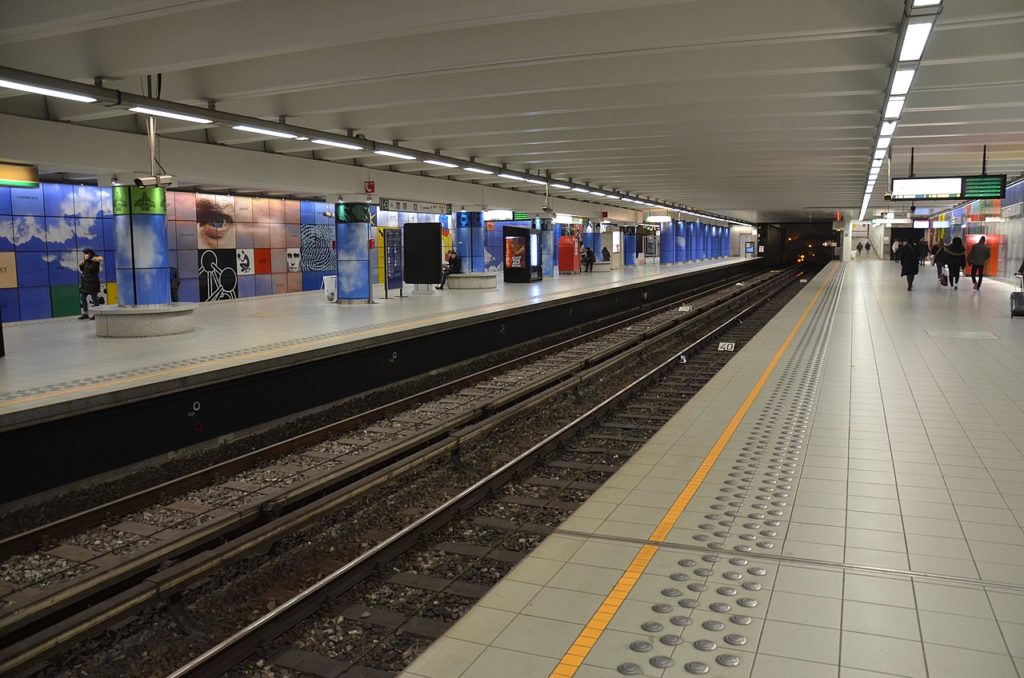The parties likely to make up the new Brussels regional government have completed the first reading of their governing accord, which includes a number of measures on mobility. Those include plans for new tram routes and a wider application of the Zone 30 throughout the region, reports Le Soir.
The parties involve are the two socialist parties PS and SP.A, the two green parties Ecolo and Groen, DéFi and Open VLD.
The agreement includes the new metro line 3, whose section from Albert to North station will be completed by 2024, with the section North station to Bordet ready by 2030. In addition, an ambitious plan for tram routes for parts of the city not served by metro has been put in place: lines 3 and 9 extended to Heysel (photo) by 2021, and links to Neder-over-Heembeek and Tour & Taxis by 2024. By 2025, an extension of tram lines 7 and 8, as well as the conversion to tram of bus lines 49 and 95.
The mobility agreement does not touch on the question of increasing the fare structure of the public transport authority Stib, but does promise a study on the free travel for under-25s and over-65s.
As far as car traffic is concerned, the agreement promises a ban on all diesel cars in the region by 2030, and the continuation of discussions with the other regions on the question of a road toll on private cars.
The Zone 30, imposing a speed limit of 30 km/h, will be extended by January 2021, the parties agree, to cover all but the most important roads in the region, such as the inner and outer ring-roads. The extension includes new road signs, increased police presence and in some cases anti-speed measures.
On a longer timetable, the new Brussels government aims to make the capital CO2-free by 2050, by reducing the primacy of the car, in large part as a result of the other mobility measures agreed.
Other issues involved in the agreement reached already including housing, with measures to cut the waiting list for social housing – currently standing at 45,000 families – that include building new homes and buying up privately-owned properties to add to the public housing stock.
Members of the Brussels parliament will from 2024 be forbidden to sit at the same time as a municipal councillor or mayor. At the same time, the number of members elected in municipal elections will be curtailed.
On the question of spending, the government intends to apply to the EU for an exception to the budget strictures to allow for major investment projects such as insulation for buildings, renovation of the road tunnels and development of the metro system.
“The first reading is complete,” said PS negotiator Laurette Onkelinx at the end of the meeting. “But some sticking points remain, and not minor ones.” The parties are due to meet again on Monday to tackle the remaining issues on the table. If agreement on the remaining issues can be reached, the new government will be ready to take the oath on Wednesday.
Alan Hope
The Brussels Times

